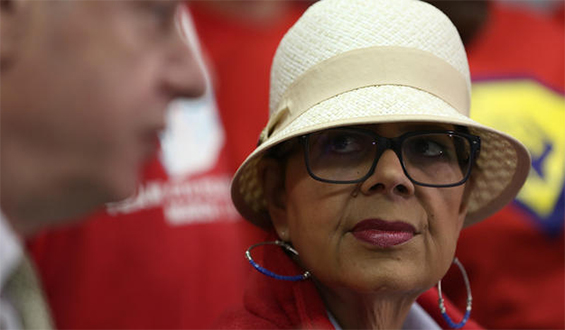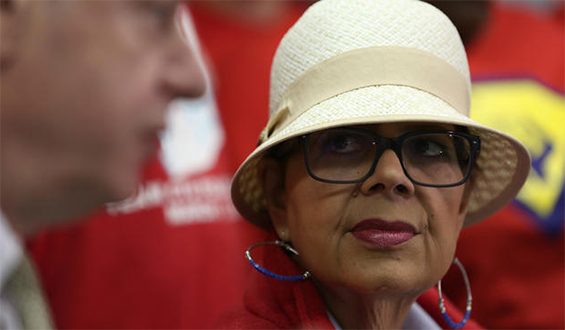
A four-year contract offered by the city of Chicago was rejected by the Chicago Teachers Union this week, although union leaders said there were provisions in the offer which they found positive. They expressed concern, however, about how the financially-strapped district would be able to enforce some of the conditions included in the proposal.
CTU President Karen Lewis told reporters who had gathered at the union’s Merchandise Mart headquarters that the problem was the mistrust the union had for the CPS district. Lewis noted that several offers were “great,” but issues surrounding classroom operation, especially where the budget is concerned, were unacceptable, according to Juan Perez, Jr. of the Chicago Tribune.
Contract negotiations have been going on for over a year and will now move into a fact-finding stage that will last at least 120 days. It is possible a deal could be reached during that process. But the union’s “Big Bargaining Team,” consisting of 40 members, did not accept this offer. In a video posted on YouTube, members were seen applauding following the vote.
The Chicago Public Schools district proposed a stop to economic layoffs and plans to come up with some modest pay increases. Last week sources added that a ceiling would be put on charter schools. But the union pointed out that a state commission can override the district on decisions concerning the privately-run, publicly-funded schools.
Union members, for their part, would be asked to yield to certain issues including increasing their payments toward their pensions and health care plans. CPS on Monday said the proposal includes a commitment to return to a city property tax levy to be used only for teacher pensions, a move which would necessitate state approval.
CPS CEO Forrest Claypool expressed his disappointment over the union’s decision to reject the offer.
“This agreement provided pay raises, guaranteed job security and met the union’s key demands, including restrictions on charter school expansion, raises for seniority in addition to cost-of-living increases, and more classroom autonomy for teachers,” Claypool said. “We are committed to returning to the bargaining table and working around the clock to reach an agreement.”
Robert Bruno, a labor expert, said there were signs that both CPS and the union have made headway. He explained that CPS would interpret the Big Bargaining Team vote as evidence of what will be needed to seal the deal.
The conditions not included in the contract, according to the Chicago Teachers Union, are the presence of services for some students and the financial crisis affecting the country’s third-largest district. CPS is currently running with a $500 million shortfall and still has not received approval from the state Legislature for a $480 million subsidy the district included in its budget proposal, reports Associated Press.
Lewis said district teachers have given over $2 billion back to CPS in the past five years, which includes a 2011 raise that was revoked and layoffs, some of which resulted from school closures. CTU has already authorized a strike if it becomes necessary.
In 2012, during the last contract talks, teachers staged a strike lasting seven days.




